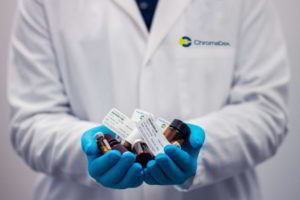Home » Clinical Trials » Page 4
Clinical Trials
A clinical trial is a study where human beings receive the treatment, and there are approx.
Under the definition of “NEW THERAPY”, are: a new drug, a new indication for a known drug, or a new technique of performing a surgery, or providing radiation therapy. A new therapy may be a treatment using a new technique (such as gene manipulation) or a new medical device.
20,000 cancer clinical trials available to cancer patients worldwide. Less than a few percent of these studies are open in each country.
Following the worldwide cancer research, new information is accumulated every day on this complex disease, on its development mechanisms, its ability to develop various resistance and refractory mechanisms for various therapies, it’s survival mechanisms, and other features.
On the one hand this information is infinitely important when one’s goal is to find a “cure for cancer” and on the other hand, this huge amount of information leads to the fact that each clinical trial on cancer has dozens of eligibility criteria that the patient must meet in order to enter these studies.
It is not enough that the patient is asking to join a clinical trial, and it is not enough that the patients bring their own disease with them. It is required that the patient is found eligible and meets all the criteria in full, otherwise the patient will be unable to join the trial and receive the most advanced and novel drugs for his or her cancer.
When there are dozens of criteria and approx. 20,000 studies on cancer a lot of very thorough work is required to find the clinical trials appropriate for a specific patient and that the patient is specifically appropriate for them, and these, so it seems, are not so many.
Though the name “CLINICAL TRIAL” may not be so attractive, the trial provides an opportunity to the patient to receive a new therapy that is of the most advanced and ingenious in the world, a therapy constituting the forefront of science, the leading therapy in the war against cancer.
Some of the therapies and study drugs receive the status of “A Breakthrough Drug” by the American Food and Drugs administration, the FDA, based on the information accumulated on the drug’s efficacy and safety, even before the clinical trials are completed and their outcomes may not have been fully analyzed yet.
Once all the clinical studies with a new drug or with an already known drug have been completed, for example, studies to find out whether an approved drug for breast cancer may also be effective in treatment of pancreatic cancer, several years will pass until the FDA approves the drug as treatment for the same cancer patients in the general population and in replacement of the standard protocols.
By taking part in the clinical trial, the cancer patient is exposed to the most advanced therapy or a drug and may gain several years’ worth of treatment prior to those be available to the general population with the same disease. It is important to note that drugs provided in the scope of clinical trials are free of charge.
When speaking of metastatic cancer patients and/or patients whose tumor type is especially aggressive, “time” is a critical resource and it is important that they do not miss out on therapies that may be advantageous for them beyond any standard therapy offered to them at the present, just because it was “flying” under the radar.
A clinical study or a clinical trial is performed for evaluating the efficacy and safety of a therapy or a treatment in human beings. The studies serve, first and foremost, the patient’s interests, the patient’s benefit, to advance forward the therapy that is offered to him or her. The trial’s goal is to push medicine forward – and by this also the treatment for cancer – through presenting new and most advanced therapies where the success rate of the treatment is still in its evaluation stage: meaning how effective and how safe it is for patients are yet to be determined.
The most advanced cancer therapies in the world are found in clinical trials.
Under the definition of “NEW THERAPY”, are: a new drug, a new indication for a known drug, or a new technique of performing a surgery, or providing radiation therapy. New therapy may be a treatment using a new technique (such as gene manipulation) or a new medical device.
The clinical trial on patients constitutes a step prior to the drug is approved for use.
Lab studies are performed prior to the clinical trials. These are considered insufficient to determine the efficacy and safety of the new therapy in human beings. These are known as “Pre – Clinical Studies”.
However, much medical information is collected about the new treatment on the way. Therefore, the treatment must be evaluated on people too, and especially when there is a solid basis to assume that the treatment may be effective.
The shift from a lab experiment to human beings is performed using calculations, formulas and models approved by the health authorities and ethic committees and were proven as correct, safe and effective when such a leap is made.
The first clinical trial on human beings is called “Phase I clinical trial”, followed by Phase II, phase III and IV.
Only if the trial succeeds in proving whatever was defined in advance for it to prove, we move to the next step. The next phase is performed on a larger group of participants (subjects). The conclusion of which is that most studies are based on added knowledge collected from previous studies of the investigational treatment.
Throughout the clinical trial all aspects and implications of the new treatment are examined, either positive or negative, effectiveness of the treatment, adverse events, as well as various dosages for determining the optimal dose.
Clinical trials are the real progress in cancer patients’ treatment and in general. Clinical trials may contribute to prolongation of life, improving quality of life and in some cases also saving lives. The consideration if a patient should join a clinical trial is at the hands of the patient, the patient’s choice and consent to participate are required and can be made only by the patient, should the patient be eligible to participate and a good match with the study’ eligibility criteria.
Prior to joining the trial, the attending physician is required to provide the patient a full explanation and review of the trial’s treatment he or she will receive, including reference to the matter of side effects, the treatment’s benefits and shortcomings. This is followed by the patient signing an informed consent form for taking part in the trial. The participation in the trial does not require any payment. The drug is provided to the patient free of charge, and in some cases even when the trial ends, the patient will continue receiving the treatment for up to three more years.
At TRIAL-IN Pharma we map the compassionate use treatments found around the world and locate these suitable to a specific cancer patient according to his or her current medical condition and history.
We equip the patient with personalized medical information, in a clear and concise format, with which the patient may continue to consult his or her attending physician in order to make a treatment decision together.
To check if our service suits your case
We need to talk

Improve therapeutic outcomes, prolong life and quality of life, are our main business.
We support access to and expand cancer treatments beyond the standard of care, with the most advanced and innovative treatment options in the world, personally matching the individual cancer patient’s medical condition and with the support of top tier oncologists.
Article categories
קטגוריות המאמרים
Popular topics










